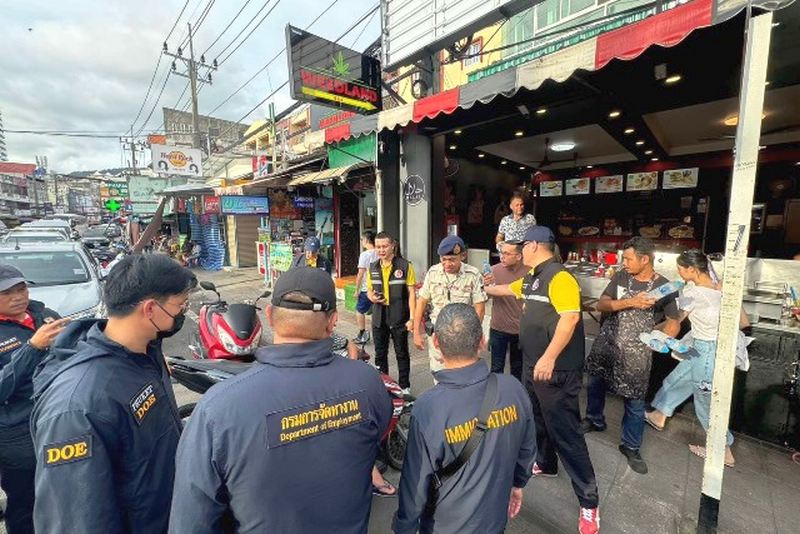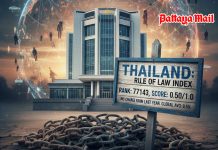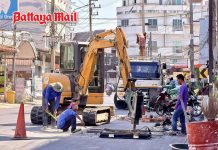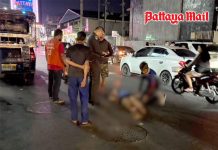
The new administration of Paetongtarn Shinawatra seems determined to tackle workplace legality. Although the vast majority of the 2,000 arrests in recent weeks have been of non-documented entrants from neighboring countries, especially Myanmar, the net appears to be widening. Director General of the Department of Employment (DOE), Somchai Morakotsriwan, emphasized a sharpened focus on “western” foreigners operating in professions reserved for Thai nationals such as tour operators, masseurs, barbers and online selling.
Dealing with illegal workers is the joint concern of the DOE and the immigration police. In practice, the labour officials mostly investigate large scale businesses using migrant workers, whilst immigration concentrates on enforcing alien laws and tracking individuals who lack the necessary authorization. In the past few weeks, illegal entrants have been found working in restaurants, coconut farms, restaurants, factories and construction sites throughout Thailand. In Pattaya the arrest emphasis has been on condominium building projects.
Earlier this month, Chonburi immigration officers raided premises where 20 Chinese nationals had rented three adjacent houses in Pattaya to run online gambling businesses and providing illegal loans with huge rates of interest. Numerous computers, mobile phones sundry items were seized. Other work-related arrests have included three Russian taxi drivers in Phuket, a mobile Ukrainian manicurist, a Japanese tour guide in Chiang Mai, a French cook in Bangkok and a British disc jockey in Pattaya.
Almost all those found guilty by a Thai court are deported. The economic migrants from neighboring countries are sent back in groups by bus or lorry. Those from more distant countries remain in jail until a single-journey airticket is paid for (not by Thai authorities). Blacklisting is automatic in most cases. Immigration authorities claim that that new technology is now playing an important role. Police lieutenant general Sompong Chingduang said that the latest biometric system can translate information on a chip to a passport to check for any facial feature irregularity.

An immigration spokesperson added that Thailand was working towards an integrated system of entry travel authorization, electronic visas and visitor data bases which would make controls much easier to enforce. The government has announced visitor and visa facilitation as one of its policy aims for 2025, but a working party on reducing the number of non-immigrant visas has not yet reported. Non immigrant visas cover retirement, spouses, families and activities such as medical tourism and sports training now under the aegis of the Destination Thailand Visa.








